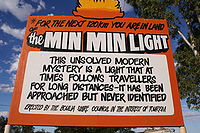Saying goodbye and thank you to your hosts is just good manners. So, any reader who stumbled across me over the years, consider this that. ~Duane Dudek
 |
| Henry Sheppard circa 1988 |
I haven't been able to sleep lying down for months; lying down triggers more coughing. What sleep I do get is taken while sitting upright in an armchair. Or while dozing in front of the computer.
I stopped going for checkups with the oncologist years ago.
I'm not complaining. I consider I've been blessed. Knowing that my time is coming to an end is a gift. I know so many who died suddenly; no time to put things right before departing.
Over recent years, I have used the mornings to publish this blog. It's been fun. I've met so many delightful people! Thank you one and all.
But now I need the mornings for other things.
When I first learned about the leukemia and the chemotherapy, I prayed for five more years. That passed in September 2012. Everything since has been a bonus.
When I completed chemotherapy and learned I was in remission, I set myself to do as much as I could, as well as I could, for as long as I could. I tried to be helpful. My apologies for all the things I am leaving incomplete. And my thanks to everyone who befriended me via this blog.
* Ah, such brave words! The reality is that once the discomfort of the symptoms outweighs your horrible memory of the treatment, you buckle under. I started chemotherapy (take 2) in September 2015 and graduated in January 2016. The leukaemia is in remission, but the damage to my bone marrow almost outweighs the gain.








